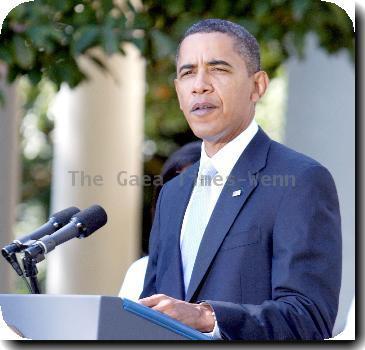Pakistani military confirms Afghan Taliban No. 2 leader has been arrested
By Rohan Sullivan, APWednesday, February 17, 2010
Pakistan confirms Taliban leader’s arrest
ISLAMABAD — Pakistan confirmed for the first time Wednesday that it has the Afghan Taliban’s No. 2 leader in custody, and officials said he was providing useful intelligence that was being shared with the United States.
The confirmation came as the Pakistani government defused a political crisis that threatened to distract from the fight against militancy by backing off on judicial appointments opposed by the Supreme Court.
The Afghan Taliban leader, Mullah Abdul Ghani Baradar, was arrested earlier this month in a joint operation by CIA and Pakistani security forces in the southern port city of Karachi, U.S. and Pakistani officials said on condition of anonymity Tuesday. The army on Wednesday gave the first public confirmation of the arrest.
“At the conclusion of detailed identification procedures, it has been confirmed that one of the persons arrested happens to be Mullah Baradar,” chief army spokesman Maj. Gen. Athar Abbas said in a written message to reporters. “The place of arrest and operational details cannot be released due to security reasons.”
The White House also confirmed the capture for the first time Wednesday. Spokesman Robert Gibbs praised Pakistan and told reporters the arrest “is a big success for our mutual efforts in the region.”
Gibbs confirmed Baradar is being interrogated but wouldn’t divulge any of the results.
A U.S. official who was briefed on the case told The AP that Baradar is not fully cooperating with authorities, and he hasn’t provided any actionable information. The official spoke on condition of anonymity to discuss sensitive information.
Baradar was the second-in-command behind Taliban supreme leader Mullah Mohammad Omar and was said to be in charge of the day-to-day running of the organization’s leadership council, which is believed based in Pakistan. He was a founding member of the Taliban and is the most important figure of the hard-line Islamist movement to be arrested since the U.S.-led invasion of Afghanistan in 2001.
Baradar, who also functioned as the link between Mullah Omar and field commanders, has been in detention for more than 10 days and was talking to interrogators, two Pakistani intelligence officials told The Associated Press on Tuesday.
One said that Baradar had provided “useful information” to them and that Pakistan officials had shared it with their U.S. counterparts. A third official said Wednesday that Baradar was being held at an office of Pakistan’s most powerful spy agency, the Directorate of Inter-Services Intelligence, in Karachi.
The officials spoke on condition of anonymity because they were not authorized to speak to the media.
Baradar’s arrest suggests the Pakistani intelligence services may be ready to deny Afghan militant leaders a safe haven in Pakistan — something critics have long accused them of doing.
Foreign Minister Shah Mahmood Qureshi called the arrest important and rejected suggestions that Pakistan was not cooperating with the United States against militants, citing as evidence recent military operations against Taliban strongholds in the Swat Valley and Waziristan tribal region.
“Our cooperation is beyond doubt,” Qureshi told the BBC from Brussels.
The arrest may also push other insurgent leaders thought to be sheltering in Pakistan toward reconciliation talks with the Afghan government — a development increasingly seen as key to ending the eight-year war.
The arrest came shortly before U.S., Afghan and NATO troops launched a major offensive against militants in the Taliban stronghold of Marjah in the southern province of Helmand, one of the regions that Baradar was believed to control. It is the biggest joint operation of the war and the first offensive since President Barack Obama ordered a “surge” of 30,000 more U.S. troops to Afghanistan.
Washington has pressed Islamabad to crack down on Afghan Taliban on its soil, and to go after Pakistani Taliban groups who have strongholds in the country’s northwest regions bordering Afghanistan. Constant political turmoil in Pakistan has threatened that focus.
The latest crisis involved ongoing tensions between the judiciary and the executive branches.
Pakistan’s constitution says the president must consult with the Supreme Court over the appointment of new judges. But on Saturday, President Asif Ali Zardari appointed a judge to the Supreme Court against its recommendation.
Within hours, the Supreme Court struck down the move, saying no consultation had taken place and that the act “appeared to be in violation of the provision of the constitution” — a position disputed by the government.
After a session with Chief Justice Iftikhar Mohammed Chaudhry on Wednesday, Prime Minister Yousuf Raza Gilani announced that three other judges agreeable to the Supreme Court would instead join the bench.
The judge who would have been elevated under Zardari’s orders will keep his current position as head of the Lahore High Court. The man Zardari wanted to serve as the acting head of the Lahore court will instead be among the three named to the Supreme Court.
The decision was another blow to the already weak Zardari, who has repeatedly clashed with the judiciary.
Gilani said Wednesday that Zardari had approved the latest decision.
“This is in the best interest of Pakistan,” Gilani said. “It will stabilize the system in the country.”
Also Wednesday, a suspected U.S. drone aircraft fired two missiles at a home in the northwestern village of Tabbi Tool Khel in the North Waziristan tribal region, killing at least three people and wounding some others, two intelligence officials said on condition of anonymity because they were not authorized to speak to media.
Associated Press writers Munir Ahmad and Zarar Khan in Islamabad, Rasool Dawar in Mir Ali, Pakistan, and Deb Riechmann in Kabul and Eileen Sullivan in Washington contributed to this report.
Tags: Afghanistan, As-pakistan, Asia, Asif Ali Zardari, Barack Obama, Central Asia, District Of Columbia, Geography, Islamabad, Judicial Appointments And Nominations, Kabul, Karachi, North America, Pakistan, South Asia, United States



